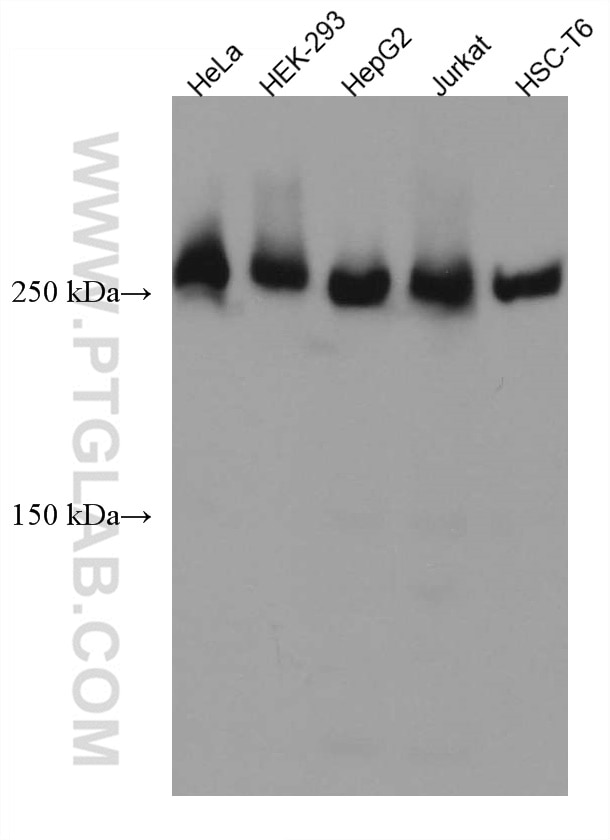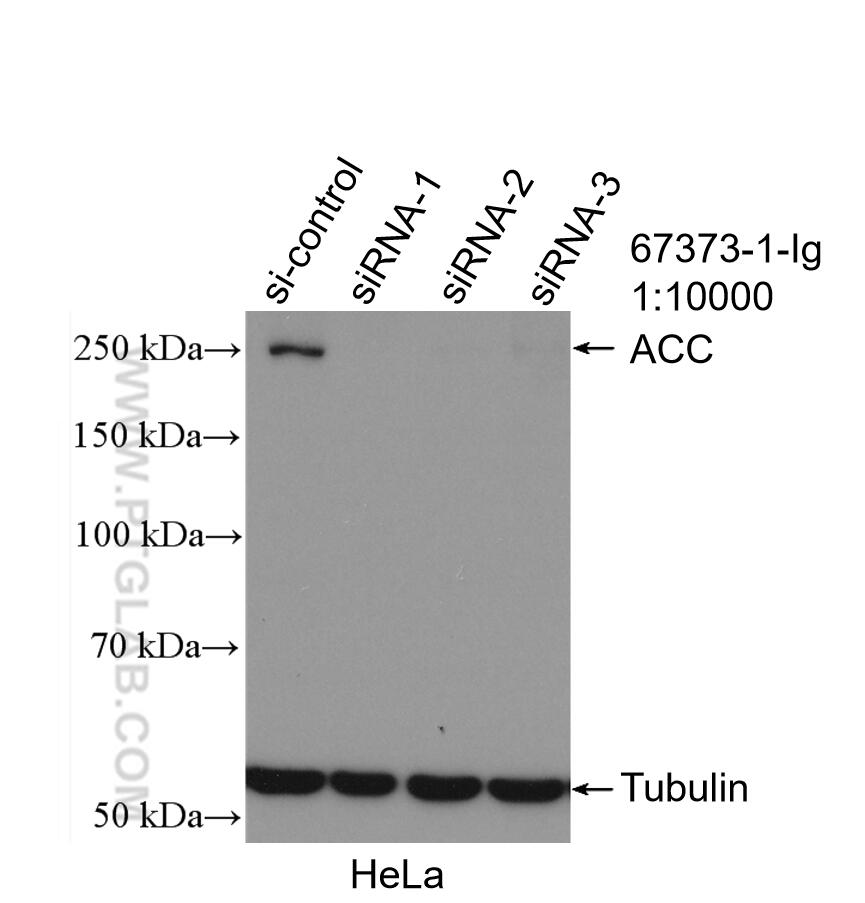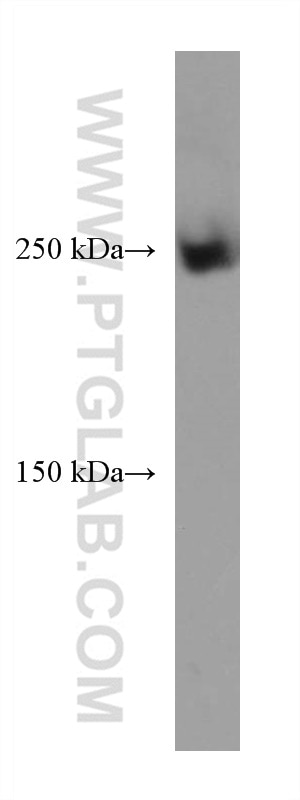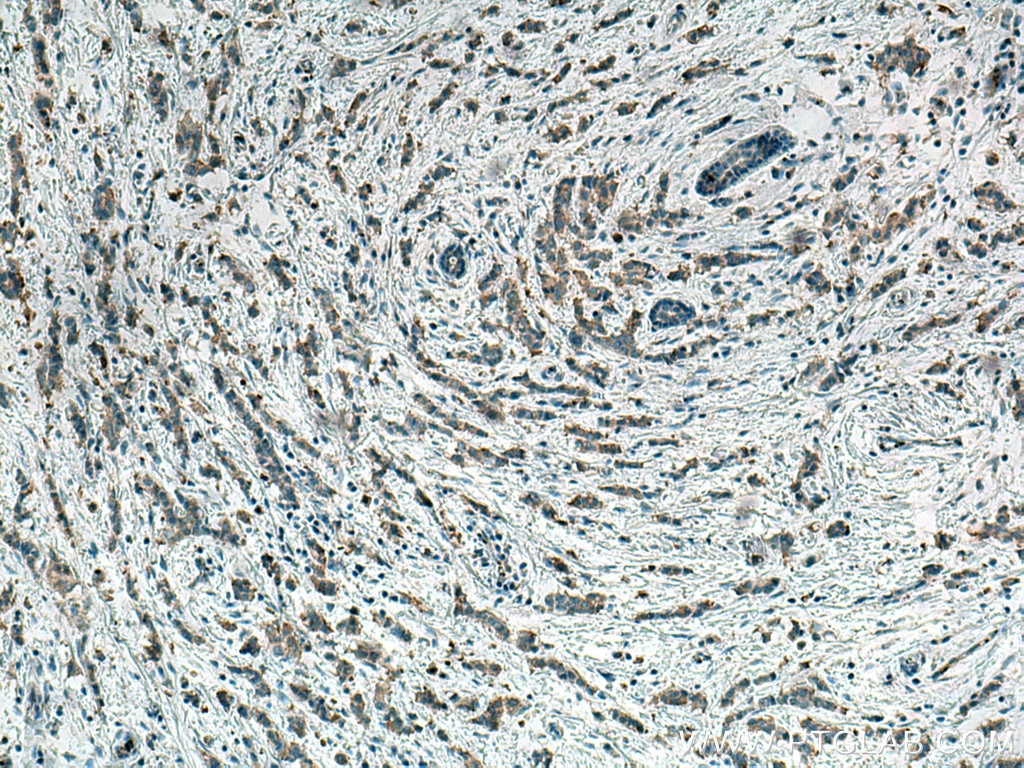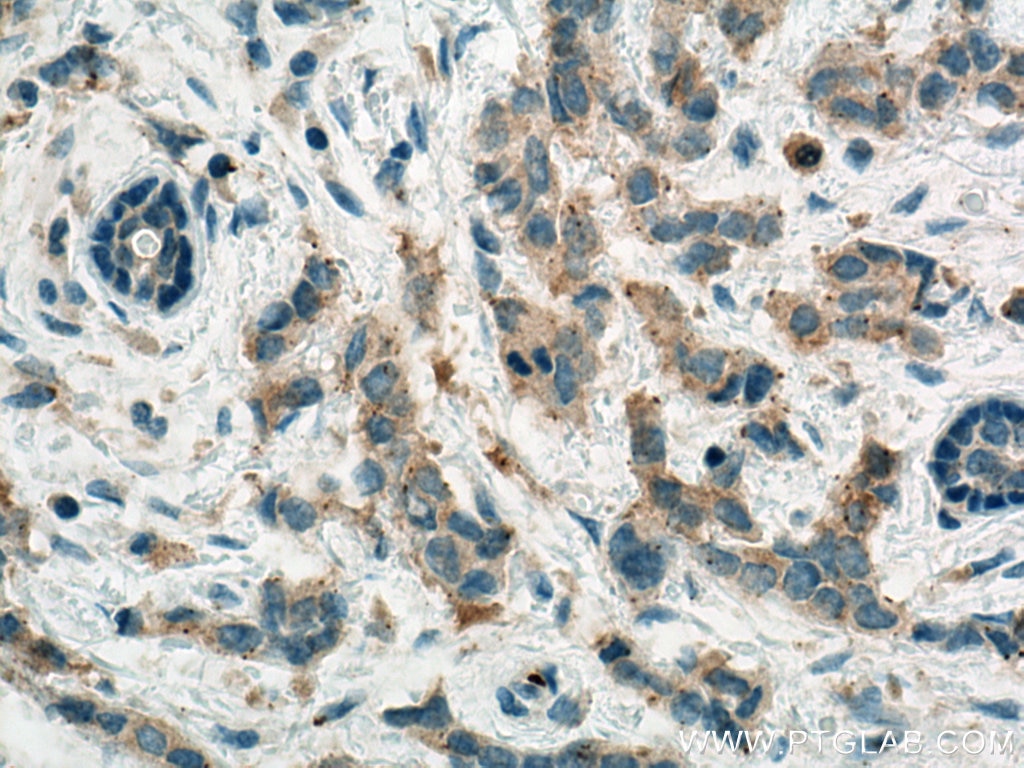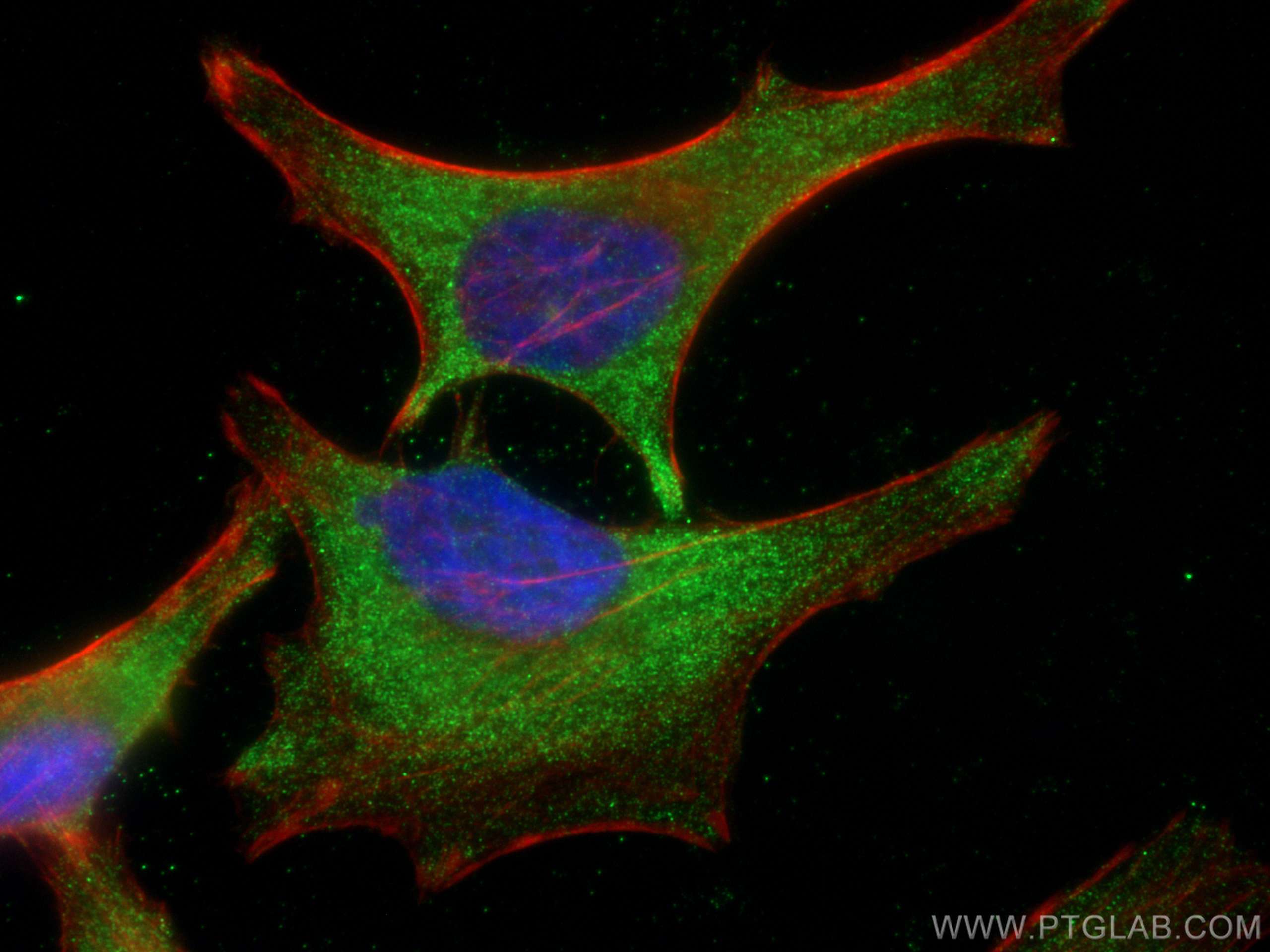Tested Applications
| Positive WB detected in | HeLa cells, NIH/3T3 cells, HEK-293 cells, HepG2 cells, Jurkat cells, HSC-T6 cells |
| Positive IHC detected in | human breast cancer tissue Note: suggested antigen retrieval with TE buffer pH 9.0; (*) Alternatively, antigen retrieval may be performed with citrate buffer pH 6.0 |
| Positive IF/ICC detected in | HeLa cells |
Recommended dilution
| Application | Dilution |
|---|---|
| Western Blot (WB) | WB : 1:10000-1:50000 |
| Immunohistochemistry (IHC) | IHC : 1:500-1:2000 |
| Immunofluorescence (IF)/ICC | IF/ICC : 1:400-1:1600 |
| It is recommended that this reagent should be titrated in each testing system to obtain optimal results. | |
| Sample-dependent, Check data in validation data gallery. | |
Published Applications
| WB | See 36 publications below |
| IHC | See 1 publications below |
| IF | See 1 publications below |
Product Information
67373-1-Ig targets ACC1 in WB, IHC, IF/ICC, ELISA applications and shows reactivity with human, mouse, rat samples.
| Tested Reactivity | human, mouse, rat |
| Cited Reactivity | human, mouse, rat, monkey, hamster, goat |
| Host / Isotype | Mouse / IgG2a |
| Class | Monoclonal |
| Type | Antibody |
| Immunogen |
CatNo: Ag17503 Product name: Recombinant human ACC protein Source: e coli.-derived, PET28a Tag: 6*His Domain: 2260-2383 aa of BC137287 Sequence: LLEDLVKKKIHNANPELTDGQIQAMLRRWFVEVEGTVKAYVWDNNKDLAEWLEKQLTEEDGVHSVIEENIKCISRDYVLKQIRSLVQANPEVAMDSIIHMTQHISPTQRAEVIRILSTMDSPST Predict reactive species |
| Full Name | acetyl-Coenzyme A carboxylase alpha |
| Calculated Molecular Weight | 2383 aa, 275 kDa |
| Observed Molecular Weight | 250-270 kDa |
| GenBank Accession Number | BC137287 |
| Gene Symbol | Acetyl-CoA Carboxylase 1 |
| Gene ID (NCBI) | 31 |
| RRID | AB_2882621 |
| Conjugate | Unconjugated |
| Form | Liquid |
| Purification Method | Protein A purification |
| UNIPROT ID | Q13085 |
| Storage Buffer | PBS with 0.02% sodium azide and 50% glycerol, pH 7.3. |
| Storage Conditions | Store at -20°C. Stable for one year after shipment. Aliquoting is unnecessary for -20oC storage. 20ul sizes contain 0.1% BSA. |
Background Information
ACACA(Acetyl-CoA carboxylase 1, ACC), also named as ACAC, ACC1 and ACCA, belongs to the biotin containing enzyme family. It catalyzes the synthesis of malonyl-CoA, which is an intermediate substrate playing a pivotal role in the regulation of fatty acid metabolism and energy production. ACACA is involved in the biosynthesis of fatty acids, and malonyl-CoA produced is used as a building block to extend the chain length of fatty acids by fatty acid synthase (FAS)(PMID:19900410). It has 4 isoforms produced by alternative promoter usage with the molecular weight between 260 kDa and 270 kDa.
Protocols
| Product Specific Protocols | |
|---|---|
| IF protocol for ACC1 antibody 67373-1-Ig | Download protocol |
| IHC protocol for ACC1 antibody 67373-1-Ig | Download protocol |
| WB protocol for ACC1 antibody 67373-1-Ig | Download protocol |
| Standard Protocols | |
|---|---|
| Click here to view our Standard Protocols |
Publications
| Species | Application | Title |
|---|---|---|
Autophagy Periplocin suppresses the growth of colorectal cancer cells by triggering LGALS3 (galectin 3)-mediated lysophagy | ||
EMBO J Rab2A-mediated Golgi-lipid droplet interactions support very-low-density lipoprotein secretion in hepatocytes | ||
Theranostics Herb-sourced emodin inhibits angiogenesis of breast cancer by targeting VEGFA transcription. | ||
Phytomedicine Garlic-derived exosomes regulate PFKFB3 expression to relieve liver dysfunction in high-fat diet-fed mice via macrophage-hepatocyte crosstalk |
Reviews
The reviews below have been submitted by verified Proteintech customers who received an incentive for providing their feedback.
FH Parijat (Verified Customer) (09-09-2023) | Goof antibody
|
FH Priya (Verified Customer) (06-21-2023) | Used this antibody for Caco2 cells and mice tissue
|

